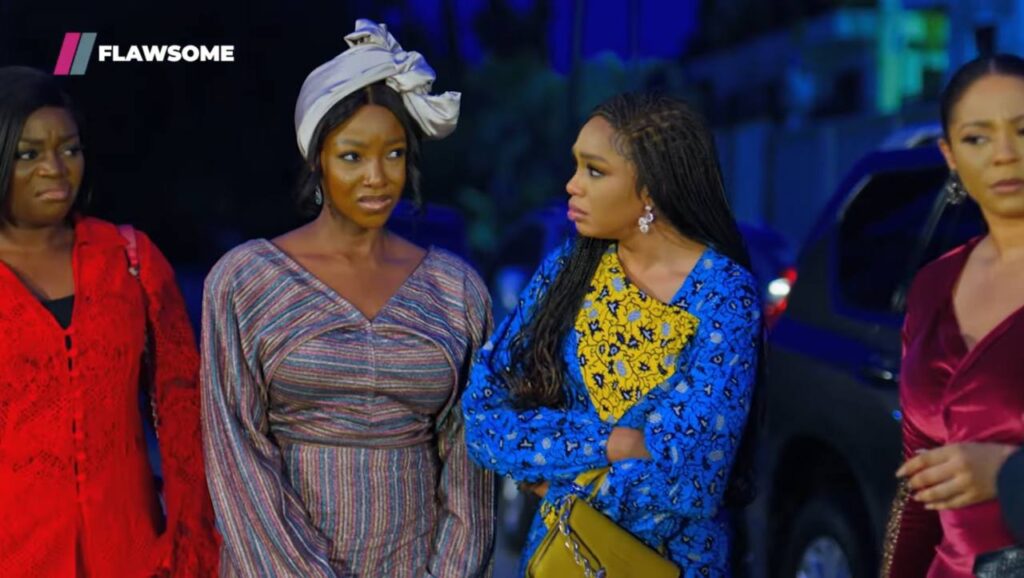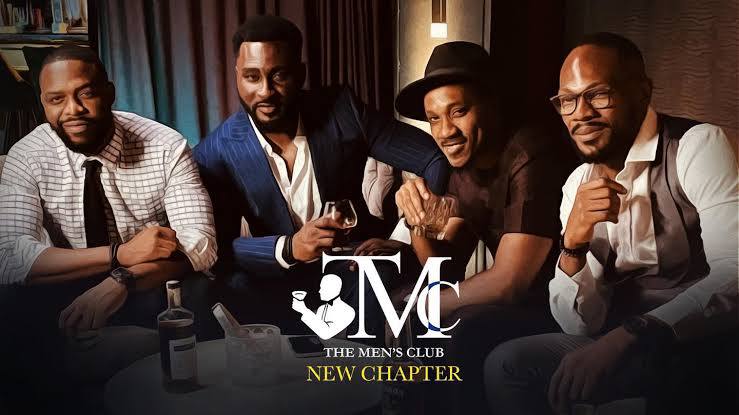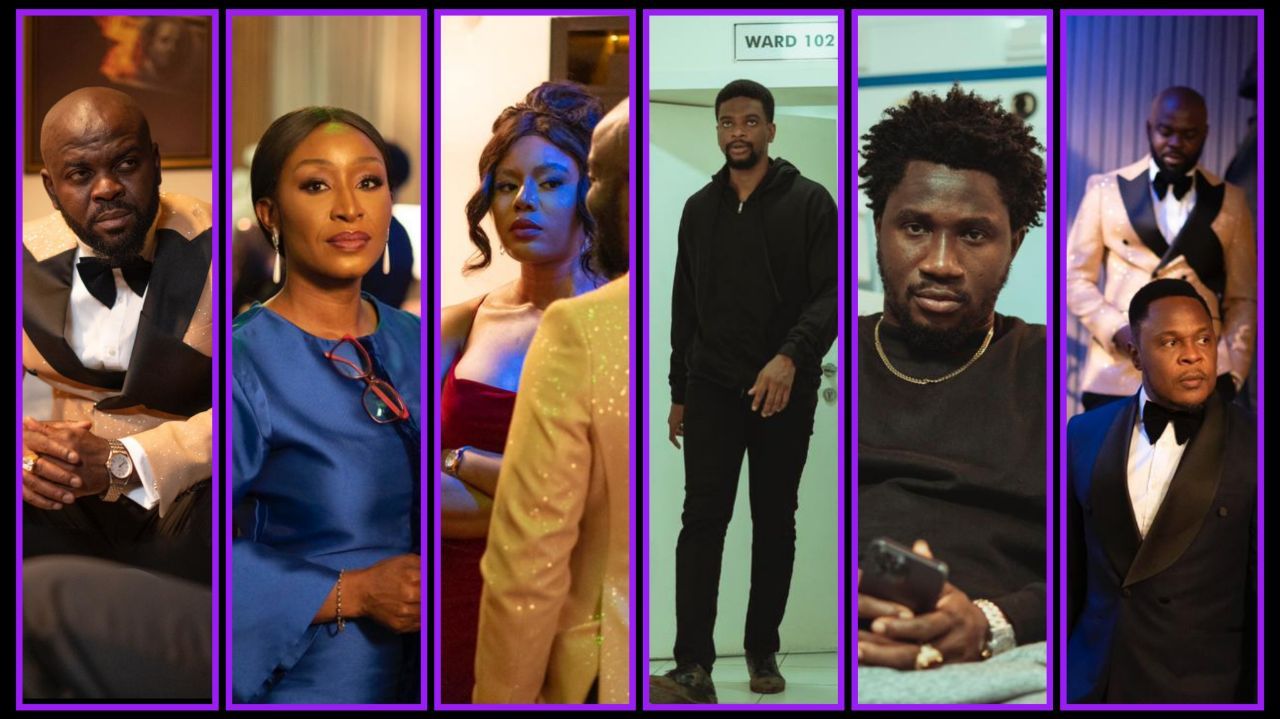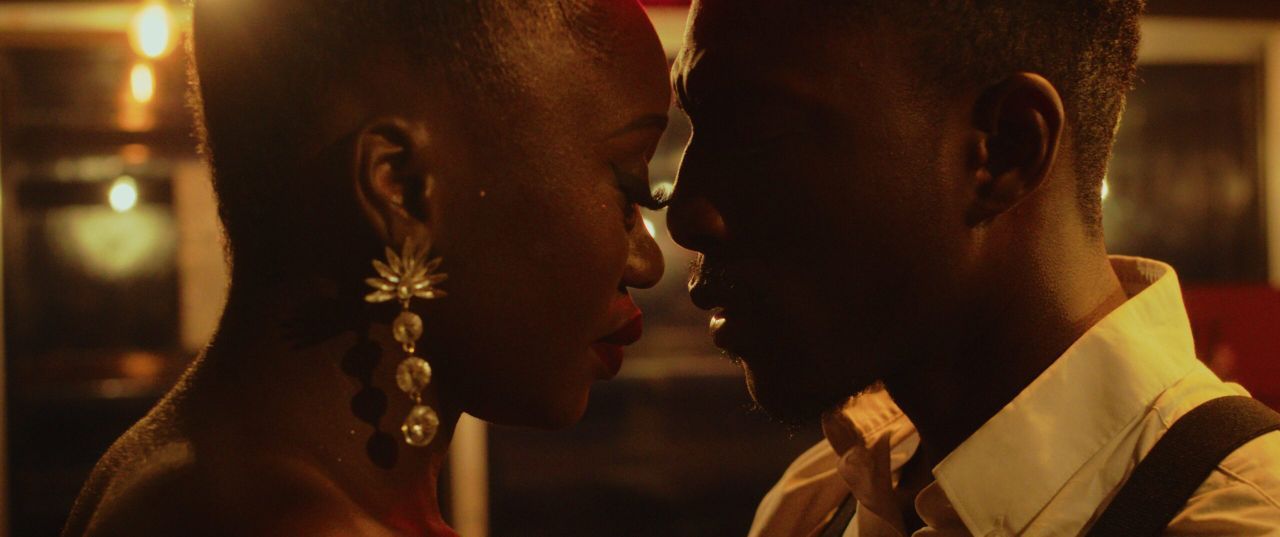Dear reader, help us understand your Nollywood preferences by filling out our audience survey—your input is invaluable and deeply appreciated! Click this link.
The Men’s Club, Flawsome, Unmarried, and Smart Money Woman have carved out a space for themselves by portraying the highs and lows of close-knit relationships. They have captivated audiences by offering stories of friendship, romance, and relatable struggles. These titles resonate because they tap into the universal need for support systems, especially in a world where career ambitions, romance, and personal growth often collide.
But as the genre gains momentum, some viewers are beginning to feel the strain of repetition. The formula—glamorous social circles, career-driven conflicts, and characters in love triangles—has become all too familiar. While it has undeniably struck a chord with audiences, the question remains: has Nollywood leaned so heavily on these narratives that they’ve started to feel predictable? Is it time for something new?
In the Beginning
Friendship-themed stories have always been part of Nollywood, but they truly took off with Tola Odunsi’s The Men’s Club in 2018. This series, which focuses on four men and their relationships, career struggles, and daily challenges, became a hit and is now in its fourth season.
Following that success, other friendship-focused films and series emerged, such as Omoni Oboli’s Last Year Single (2020), Arese Ugwu’s adaptation of Smart Money Woman (2020), Mnet’s Unmarried (2020), Ndani TV’s Game On (2021) and Tola Odunsi’s Flawsome (2022), which centers on four female friends.
With The Men’s Club: New Gen, piloting a potential spin-off that introduces four younger male characters forming their own men’s club within the same world as Aminu and his friends, the creators are bringing in fresh faces to expand the storyline. This move doubles down on a proven premise, signaling their commitment to the genre. If successful, it could evolve into a full-fledged series, further cementing the appeal of friendship-driven narratives in Nollywood.
As viewers, we can’t help but wonder why filmmakers keep returning to this familiar storyline.
Why Nollywood keeps returning to these familiar storylines
Time and time again, research shows that people are naturally drawn to stories they can relate to. In Nigeria, the average viewer experiences love, has a close group of friends, and is likely dealing with employment challenges—whether unemployed, self-employed, or building a career. Most of these series tap into those exact themes, which is why they resonate well with Nigerian audiences.
However, when we take a closer look, we notice certain recurring elements that define these films, as well as a tendency for these elements to feel predictable and, at times, repetitive.
Take, for instance, The Men’s Club, a hit web series that explores the lives of four successful Nigerian men. The show is lauded for its portrayal of male friendship, offering a refreshing departure from the usual macho depictions of African masculinity. The bromance between Louis, Aminu, Lanre, and Tayo forms the heart of the series, with scenes where the men gather, share drinks, vent, and provide each other with emotional support. These moments are portrayed with ease, often filled with humour, banter, and raw honesty, reflecting a deep sense of vulnerability that has previously been underrepresented in African media.
Despite these positive elements, however, The Men’s Club does not shy away from familiar tropes that have come to define Nollywood’s take on friendship. For example, the series repeatedly hinges on the tension between romantic relationships. The men’s romantic lives are fraught with conflict—be it toxic engagements, infidelity, or complicated love triangles. This pattern of exploring friendship against the backdrop of romantic drama has become a staple in Nollywood friendship-trope movies, often overshadowing the depth of the friendships themselves.
The show’s portrayal of women also follows a predictable path: they are often sidelined into roles of love interests, villains, or sidekicks. While some female characters, such as Tiara and Lola, are given moments of depth and complexity, many others are relegated to serving the needs of the male characters’ story arcs. This dichotomy perpetuates a sense of imbalance that viewers have come to expect from these narratives.

Beyond the formulaic plotlines, The Men’s Club also demonstrates a pattern of emotional stagnation in the characters. As the series progresses, the men’s dilemmas—whether they be career-related, romantic, or familial—remain largely unresolved, creating a sense of repetition. For example, Aminu’s ongoing struggles with love and betrayal mirror those of his friends, and even the character development of Louis, the often lighthearted member of the group, follows a predictable arc as he grapples with commitment issues and eventual reconciliation. The predictability of these character journeys often detracts from the overall impact of the friendships themselves, making them feel more like vehicles for drama rather than authentic explorations of male camaraderie.
In analyzing The Men’s Club and other similar Nollywood films, it becomes clear that while the friendship trope offers some refreshing moments, it is often overshadowed by repetitive storytelling elements. The constant interplay between romantic tension, female objectification, and unresolved emotional growth has become a hallmark of these films, creating a cycle that is difficult to break. While there are still moments of genuine emotional connection between characters, the reliance on familiar tropes risks making these films feel formulaic, rather than innovative.
Still, filmmakers might argue that they are bringing new flavours and perspectives, especially in character dynamics and thematic focus, like financial literacy in The Smart Money Woman.
Anis Halloway, director of Unmarried, explains, “There are six million ways to tell a friendship story. Life offers enough dynamics to provide new perspectives. While there’s nothing new under the sun, there are always ‘Frankenstein methods’ to breathe life into familiar narratives.”
Halloway also highlights the distinction between passion projects and client-driven work, noting that directors often work within the vision set by producers or networks. “For Unmarried, I was brought in to interpret an already-formed story. My focus was on executing the vision authentically and resourcefully. When it’s my own project, I naturally have more creative freedom, but even then, the key is to tell an honest story without trying to please everyone,” he adds.
This approach reflects the balance Nollywood creators must strike: delivering stories that meet audience expectations while finding innovative ways to present timeless themes.
Is the Public Tired of Friendship Films?
Early-career directors point to market pressures often dictating storylines, as producers prioritize themes with proven audience appeal. However, there’s a growing push for fresh perspectives. Fan reactions to Nollywood’s friendship-themed series are divided. For some viewers, these stories remain a favourite. “I love seeing characters in The Men’s Club and The Smart Money Woman deal with love, career, and personal struggles. It’s like watching my own friendships play out on screen,” says one fan in the survey conducted by WhatKeptMeUp. Another praises the genre’s relatability but suggests, “Filmmakers should explore more diverse friendships, like intergenerational ones or friendships shaped by class struggles.”
However, others feel the trope is becoming stale. “These stories feel repetitive—friends solving life and relationship dramas over and over. Nollywood needs to branch out into unconventional themes like historical friendships,” one critic notes. Another viewer calls for more complexity, suggesting, “Let’s see friendships with layers: envy, betrayal, or competition. That would add depth.”

This sentiment points to a growing sense of audience fatigue. The constant repetition of themes—such as career-focused friendships or romantic challenges in elite settings—can alienate viewers looking for something fresh. Many fans are increasingly seeking more varied and unconventional narratives. For instance, there’s a demand for stories featuring rural friendships, intergenerational bonds, or friendships shaped by class struggles, reflecting a broader spectrum of Nigerian life.
Such themes are not only relevant but have been successfully explored in Nollywood and globally. In The Figurine (2009), director Kunle Afolayan combines a mix of mythology and friendship, while in global cinema, films like The Farewell (2019) offer a refreshing take on cross-generational relationships. These examples show that diversifying narratives while maintaining the emotional depth of friendship stories can continue to captivate audiences, suggesting a path forward for Nollywood to avoid stagnation.
What’s Next for Nollywood?
Nollywood’s portrayal of friendship in its movies is both a celebration and a critique of the genre. While these films attempt to break new ground, they often fall back on well-worn paths that limit their potential for true originality. If Nollywood hopes to evolve beyond the cyclical nature of its friendship tropes, it will need to take a deeper look at how these relationships are portrayed, moving away from predictable patterns and embracing more diverse and nuanced representations of friendship.
With the popularity of these existing friendship trope movies, it’s clear that feel-good stories have a place. However, the industry’s ability to innovate will determine whether these themes can stay relevant in 2025 and beyond. Clearly, audiences are ready for stories that challenge norms and reflect the evolving realities of Nigerian life.
Become a patron: To support our in-depth and critical coverage—become a Patron today!
Join the conversation: Share your thoughts in the comments section or on our social media accounts.
Track Upcoming Films: Keep track of upcoming films and TV shows on your Google calendar.





